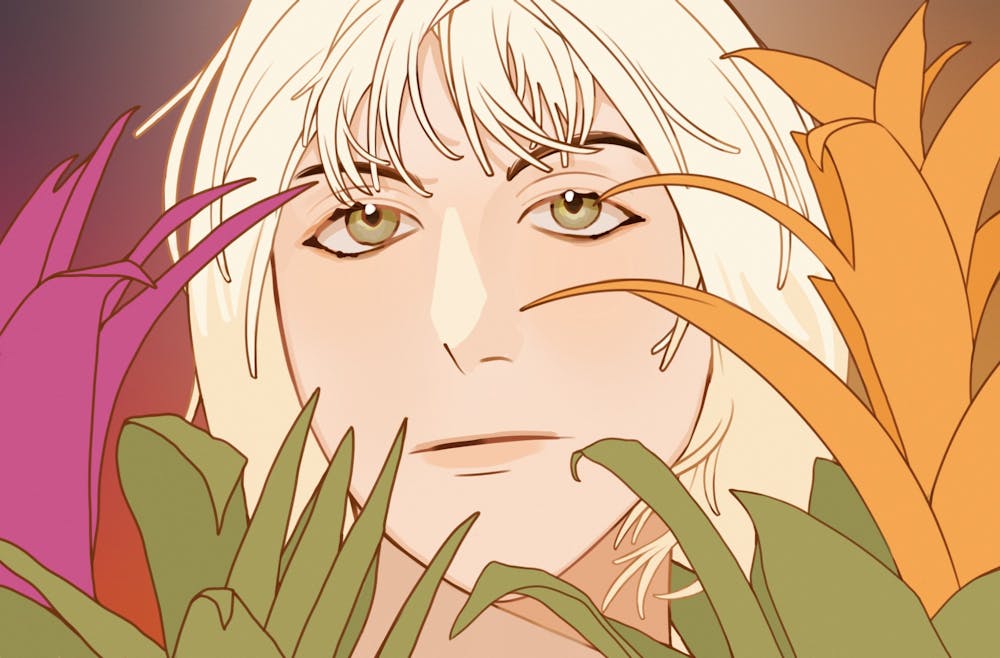Paramore's lead singer Hayley Williams is no stranger to emotional pain, and she’s not afraid to bear it all on her sophomore solo album, FLOWERS for VASES / descansos. Williams’ album explores the dissolution of her decade–long relationship with guitarist Chad Gilbert, compounded by the isolation of quarantine and COVID–19 life. It’s only the second time we have heard her sing since Paramore’s last album, 2017's After Laughter, but the group's spunky pop sound in “Rose–Colored Boy” has metamorphosed into a haunting indie reincarnation for Williams' solo endeavor in tracks like “Find Me Here.”
Following her 2020 solo debut, Petals for Armor, Williams explained why she wanted to foray into independent music without her longtime band, saying, “These stories are so personal, and I didn’t really want to give this to something that, to me, already has a legacy.” We see Williams continue to piece herself back together through indie folk melodies in FLOWERS for VASES / descansos, reminiscing about a broken relationship and the carnage left in its wake.
Poetry and pain intertwine even within the title of her album. Descansos, small crosses left in remembrance of sites of "unexpected and violent" deaths, mark songs trying to make sense of her complicated perspective of love. It’s often gritty: she asks us “But I’ll let my body bleed out, leaning to my left side / If your part of me is gone now, do I wanna survive?“ and the desperation is almost too intimate, too raw to bear comfortably.
At times, Williams fumbles over somewhat repetitive lyrics, but her powerful voice lifts each track to showcase a more muted, husky tone. Beyond her vocal prowess, Williams' skills as a composer shine through instrumental reprieve in “descansos.” Daniel James, who produced FLOWERS for VASES / descansos, praised Williams for playing every instrument featured on her album—each strum of the guitar on "Trigger" and snap of the snare drum in "Over Those Hills" is Williams. In this way, the album is a dissection of a pop punk rockstar, each fiber of its existence a personal piece of herself.
Convoluted outlooks on love imbue FLOWERS for VASES / descansos, a motif well–documented throughout Williams' career. Cynicism and creeping fear notably snake their way into one of Paramore's most iconic love songs, "The Only Exception." Williams opens with a memory of her parents' marriage difficulties and ends the first verse with a vow: "And that was the day that I promised / I'd never sing of love if it does not exist."
A few years after her declaration, Williams belted another Paramore classic with "Still Into You" in 2013. As she sings about the relief Gilbert felt after she confessed her love for him, it seems she has found a relationship worth breaking her original promise. Now, following her divorce, tracks like "Trigger" both eulogize their relationship and return to that vow she once made: "All I ever had to say about love is a sad song."
In many ways, Williams is still dealing with the broken pieces of her past in FLOWERS for VASES / descansos, cutting her hands on the reality of being alone. Her words are laid out, naked on a medical table, punctuated only by sparse instrumentals. Her lyrics haunt with their surgical imagery: she describes herself as "Skin and bones when you're not near me / I'm all skeleton and melody" and references flatlines and missing heartbeats with "Asystole."
Even with moments of claustrophobic intimacy, Williams isn't solely focused on grieving through descansos of her metaphorical deaths. Liberation and growth are melded with her latest project, marking remembrance of her past self and acknowledging the future. When discussing the album's title, Williams tweeted that she chose "flowers for vases" because "I need to learn how to not hold on to dead things. so I threw out all the dead flowers, replaced them with living."
In Williams' favorite book, Women Who Run With the Wolves, Dr. Clarissa Pinkola Estes writes that every woman dies a thousand deaths within her lifetime. These deaths come in the form of betrayal, broken hearts, and forks in the road that precede major change. Moments like these are marked by descansos, indicators of decisions that alter everything—and Estes believes that "There is a time in our lives ... when a woman has to make a decision ... and that is whether to be bitter or not." Honoring these descansos, seeing them for what they were and were not, and leaving them in the past is the only way to grieve the days that have already slipped away. In FLOWERS for VASES / descansos, Williams is surrounded by pain—but she refuses to drown in it. Her descansos, confessions about all of the disappointments, heartbreak, and broken aspirations, all lie exactly where they belong: in the past, a final resting place for what once was.







